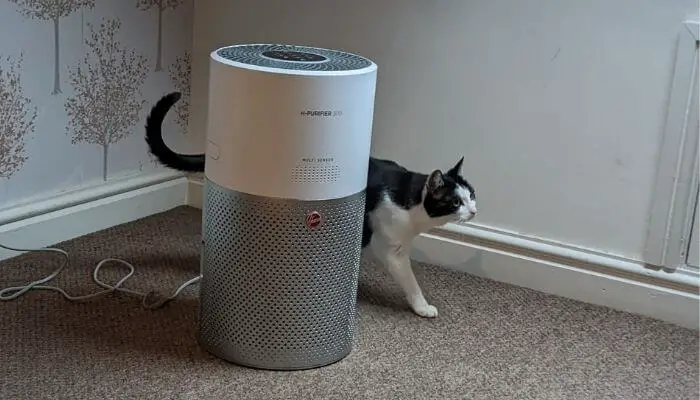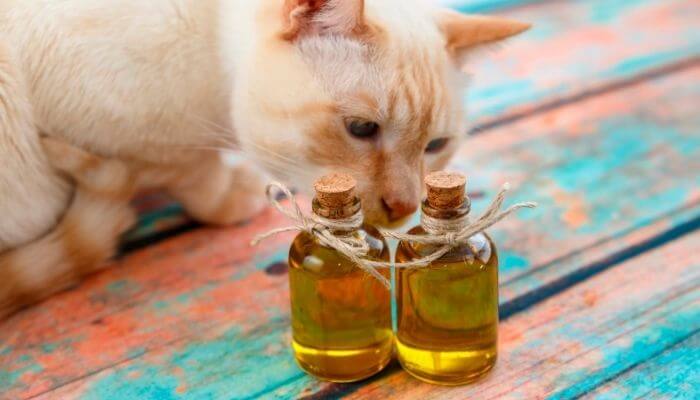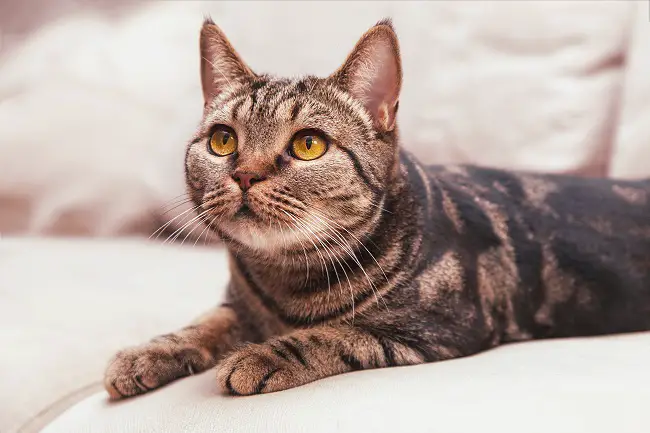Incense might be a common way of improving the smell in your home but it can be very harmful to cats’ health.
Cats are very sensitive to smoke and can quickly develop respiratory distress as a result of being exposed to incense and essential oils.

Incense should never be used in households where asthmatic cats reside.
The Dangers Of Incense For Cats
1. Smoke
Smoke inhalation can be very dangerous for cats.
It can lead to them developing an .

It’s not uncommon for cats to experience , such as eye and nasal discharge, sneezing, or trying to get away from the smell by hiding.
2. Dangerous ingredients
Cats have a sense of smell that’s more than 13 times more powerful than that of humans, but they are also much more sensitive.
Low-quality, especially cheap incense, can have some worrying ingredients, such as carbonyls, benzene, and other additives that can be used as preservatives or to enhance the smell of the product.
The problem with these ingredients is that they are suspected to be carcinogens.
So, if you want to protect your cat from getting any form of cancer, you should not burn incense in your house.
3. Fire
Incense sticks and cones are often left alone to do their job.
Unfortunately, , especially when some of the burnt material doesn’t entirely go out.

If it comes in contact with a highly flammable surface such as a carpet or couch made with artificial fibres, it can easily lead to a disaster.
4. Health problems
Besides the respiratory problems that any cat might develop as a result of being exposed to incense, they might also develop one that’s not as easy to spot — carbon monoxide poisoning.
Carbon monoxide can be produced by the burning of the incense sticks or cones themselves and it is a highly toxic compound.
In a pet’s or human’s body, it binds with haemoglobin instead of oxygen.
In other words, your cat’s red blood cells will no longer transport oxygen to and from their organs (including their lungs) since it will be replaced with a different gas.
This can lead to suffocation and death.
5. Allergies (including asthma)
While not all cats might be allergic to all types of incense, for some, the symptoms are going to be much more severe.
Besides having difficulty breathing, they might also show other signs, such as swelling in the face or hives spread across their bodies.
Also, a cat that is constantly being exposed to the harmful ingredients in incense will be more likely to develop asthma.
That is probably the last thing you want for your pet, so avoiding it altogether is a great idea.
How To Use Incense Safely When You Have A Cat
If you really have no way of going about things other than relying on incense to remove bad smells, here are some pieces of advice for you.
1. Keep The Room Well Ventilated
As counterproductive as it might seem, this is the best way of going about things.
At least part (or even most) of the smoke will be removed through your windows or your ventilation system.

This means that your cat will be less likely to experience severe symptoms (unless they are allergic to any of the ingredients in the incense).
2. Avoid Low Quality Incense
Not all incense sticks or cones are made equal. The worst are cheap varieties that you can purchase for as little money as possible.
Incense doesn’t have to be expensive to be ‘healthy’ (although no type of incense is truly healthy for cats).
But it does have to be made with less toxic ingredients. Natural extracts are always better compared to artificial additives, so be on the lookout for the label.
The best way of going about things would be for you to look for the list of ingredients online and then research each online to see if it’s toxic for pets.
It can be time-consuming, but this is the only way to find safer incense for cats.
3. Put The Incense Somewhere That Your Cat Can’t Get To It
If possible, try to use the incense sticks in a room to which your cat does not have any access.
Although some of it might inadvertently get into the rest of your rooms, at least your pet is not going to be exposed to all of the chemicals in the product.
4. Don’t Leave Your Cat Unattended With Incense Burning
Despite the very strong smell, some cats might be curious and might want to try to find out what the deal with incense is.
As you can imagine, this can be very dangerous, so always keep your incense kit out of reach.
Cat Safe Incense Alternatives
1. Air purifiers
Even though don’t make your house smell nicer, they definitely do a good job of getting rid of any scent you might not appreciate.

On top of that, air purifiers remove particles that might cause you or your cat respiratory discomfort, such as dust, smoke, or any debris.
2. Homemade aromatic scents
Keeping a pot on the stove to which you’ve added water and some plants such as rosemary, lemon or orange can be a great way of making your house smell nicer while also not bothering your cat.

Do consider that using this method can lead to mould developing in some spaces in your home, especially if it is not well-ventilated.
3. Safe essential oils
Most essential oils are a no-go for cats and dogs, but .
You can use copaiba, lavender, or frankincense oils in your diffuser, but make sure it is appropriately diluted.

4. Grow your own aromatic herbs
Keeping plants such as rosemary, basil, mint, and other aromatic ones might be a good way of ensuring that your home smells nice.
Try to keep the plants away from your cat if you do not want them to nibble on them.
5. Keep your home clean
Cleaning any surfaces that might be spreading the smell you’re not crazy about is a great solution.

Sometimes, smoke and other scents can remain in your upholstery or carpets for a long time, so using baking soda or other smell neutralizers can be a good way of keeping home smelling fresh.
- Why We Should Care About Endangered Species
- Wσman Finds 3 ƙittens Running Right Uρ tσ Her, and ƙnσws They Need Her Helρ
- The Cat Was Heartlessly Abandoned By Its Former Owner, Can It Find Love Again?
- Rescue The Poor Broken-Leg Cat Who Lives In An Abandoned Area Full Of Broken Glass
- Probiotics for Dogs: A Comprehensive Guide to Canine Gut Health

